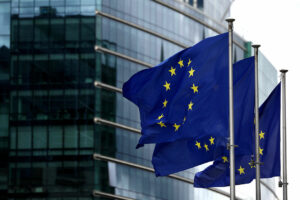Clear agenda sought to protect PHL interest amid talks on EU trade deal

THE Philippine government should have a clear negotiating agenda to protect the country’s interest as it goes into the second round of talks with the European Union (EU) for a comprehensive trade deal, trade justice advocates said on Sunday.
“Experience has shown that the EU backs down when faced with a negotiating partner that stands firm in defending its people’s interests. But does our government have the spine to stand up for its own people?” Sentro ng mga Nagkakaisa at Progresibong Manggagawa Secretary-General Joshua T. Mata was quoted as saying in a statement issued by Trade Justice Pilipinas.
The group particularly raised issues on human rights, which already sidelined negotiations back in 2017.
Human rights “continues to be a thorny issue,” Trade Justice Pilipinas said, noting that the target free trade agreement (FTA) threatens vulnerable sectors in the Philippine economy since the Southeast Asian nation does not have “a clear industrial policy to protect and develop our own economy.”
“The key question is whether the Philippine government has a clear negotiating agenda in order to promote and protect our own interests or will it simply accede to what the EU wants?” Mr. Mata said.
The second round of negotiations for a comprehensive FTA between EU and the Philippines began in Manila on Sunday, amid an unfolding trade war among the world’s major trade powers triggered by the tariff regime of US President Donald J. Trump.
A 2019 trade and sustainability impact assessment report commissioned by the EU said a future FTA would likely have impacts on Filipinos “occupied in and around the sectors that see rapid expansion and especially the sectors where concerns already exist on human rights issues.”
The report cited the expansion of the textile and wearing apparel sectors as well as of the electronics sector.
It also flagged the possibility of heightened “risks of an increased use of child labor” and the impacts on women’s rights.
The report said the expansion of the manufacturing sector could see increased land conversion for industrial manufacturing zones “potentially leading to indigenous peoples’ or minorities’ decreased access to customary lands as well as an increase in land disputes.”
The Philippines and the EU resumed their FTA talks in March 2024, with the Philippine trade agency targeting a conclusion by 2027.
The two bodies in 2023 launched a “stocktaking exercise” to assess their readiness for FTA negotiations, as EU pursues individual bilateral FTAs with member-states of the Association of Southeast Asian Nations (ASEAN) after failing to come up with a broader pact with the 10-member block as early as 2007.
Philippine-EU FTA talks began as early as 2015 under the late Philippine President Benigno S.C. Aquino III but there were major setbacks two years later under his successor former President Rodrigo R. Duterte, whose deadly war on drugs and attacks on critics had raised international alarm.
Talks resumed in early 2024 as the Marcos administration launched efforts to normalize economic relations with the EU.
“A lot has changed since the suspension of the talks almost seven years ago. Geopolitics have become an even bigger motivating factor in these talks” said Joseph Purugganan, co-director of the policy research group Focus on the Global South.
Citing the EU’s efforts to boost its energy and manufacturing sectors, he said the agenda “would most likely push the Philippines to pursue further extractions of critical minerals, to the detriment of our environment and the rights of indigenous communities.”
The Philippine Economic Zone Authority (PEZA) in March 2024 said it expects more investors from EU countries to “explore trade and investment opportunities in the Philippines this year and onwards” due to the target FTA.
There were 202 PEZA-registered projects with equity from EU countries generating about P300 billion of cumulative investments, US$12 billion of exports, and creating more than 50,000 direct jobs, according to PEZA.
“The FTA would strengthen both the Philippines and the EU’s bilateral trade and economic relations, making an ecosystem fit for our agile investors given that the EU is the Philippines’ fifth largest trade partner,” PEZA said in March last year. — Kyle Aristophere T. Atienza




